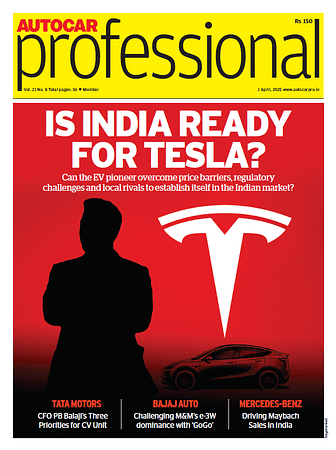‘Industry has 15 years to bridge skill gap in electrification’: Sudhendu J Sinha
The Advisor to the NITI Aayog champions the cause of cross-domain engineering courses, as well as hands-on training to prepare a future-ready workforce.
With the global transition to electric mobility, there is a growing need for engineering, manufacturing, servicing, and troubleshooting EVs that are significantly different as compared to their conventional ICE counterparts.
While these vehicles do away with several rotating parts associated with an IC engine thereby asking for very little maintenance, they do, however, have much more complicated systems in the form of the high-voltage EV architecture, high-performance computers, and the battery management system (BMS) that runs extensive software and algorithms to tap the best performance out of the EV battery pack.
As a result, EVs today demand specific competencies in software development, platform engineering, electronics, as well as battery technology, so as to offer the right quality product that is safe to operate and is built with the highest quality standards. Moreover, EV servicing also requires specific competencies and experience to offer high-quality workmanship, as well as troubleshooting capabilities that demand a deeper understanding of the electronics-intensive constituents such as the BMS.
The Society of Indian Automobile Manufacturers (SIAM), on July 16, conducted a workshop to address the skill gap, and empower an EV-ready workforce in the automotive sector. Addressing the audience at the forum, Sudhendu J Sinha, Advisor, NITI Aayog, said, “It is time that we restructure traditional engineering courses to develop cross-domain courses. That is the need of the hour.”
Sinha was highlighting the industry's need of a cross-domain approach while designing EVs that demand multiphysics and concurrent engineering between mechanical, electronics, and software teams. He further added that in addition to theoretical knowledge, students must get opportunities to get hands-on experience in environments where EVs are being designed and manufactured.
“At NITI Aayog, we have nudged IITs to open CoEs (Centres of Excellence), and today 16 out of 23 IITs have CoEs. Today, we have around 18-23 Master's and Doctoral programmes in electrification being offered by these prestigious engineering institutions in India,” he said.
Sinha explained that If around 50 million EVs are envisioned to be plying globally by 2040, “we barely have a 15-year window to bridge the skill deficit in the area of vehicle electrification.”
“Therefore if we create these skilling opportunities, it would augur well for the entire industry. This would also ensure employability at the global level. We must also attempt to break the myth that electrification will reduce jobs, especially in the informal sector,” he said.
RELATED ARTICLES
Sasken Technologies Completes Acquisition of Borqs Technologies
Sasken plans to leverage Borqs’ deep expertise in embedded software and wireless product solutions to strengthen its pro...
BluSmart Dismisses Speculation on Exiting Consumer Business
BluSmart's clarification comes in response to reports circulating on platforms like X, suggesting that BluSmart might pi...
Suzuki Motorcycle India partners with Flipkart to introduce online booking for two-wheelers
Suzuki Motorcycle India collaborates with Flipkart to introduce online booking for select two-wheeler models across eigh...






 16 Jul 2024
16 Jul 2024
 2960 Views
2960 Views





 Arunima Pal
Arunima Pal



 Sarthak Mahajan
Sarthak Mahajan

